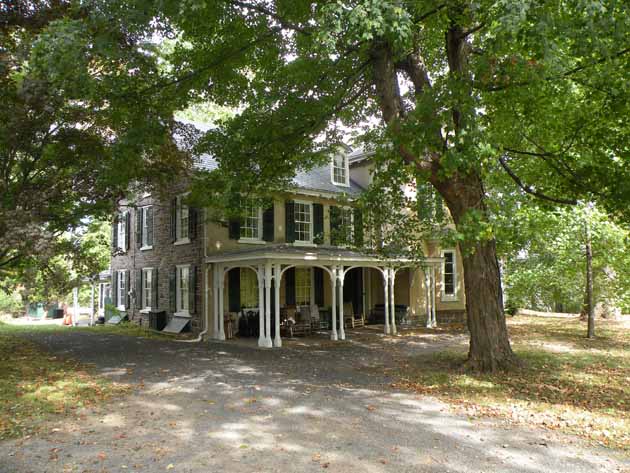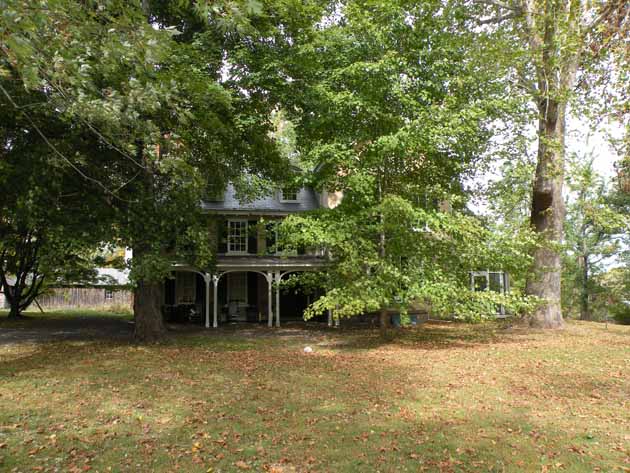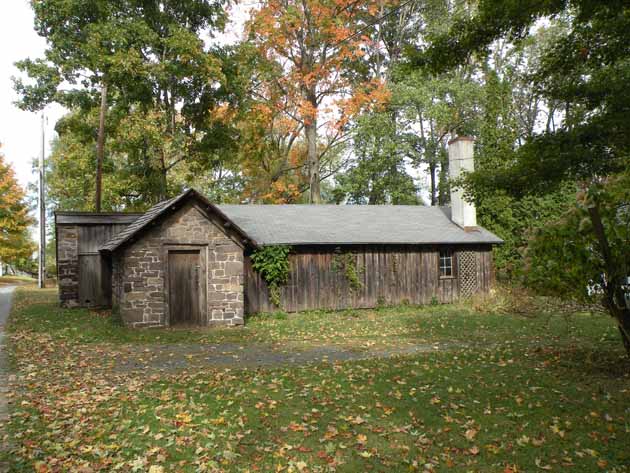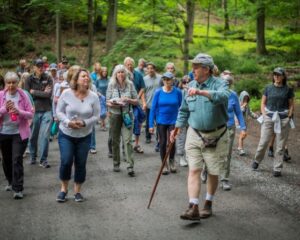Maple Grove on Bridge Street in New Hope was the home of Oliver Paxson, a prominent Quaker elder. Along with Samuel Eastburn, he was one of the men responsible for witnessing the manumission recorded by the Bucks Quarterly Meeting when they finally banned the practice of slave owning. In 1778, he was appointed to advise and assist the former slaves of Quakers, especially with regard to religious practice and education.
Unlike many Quaker farmers who were happy to accept unfree labor as an expedient way to meet their financial goals, Paxson took a deeper look at the reasons people adopted the practice of purchasing servants, as well as the negative effect this could have on the Quaker farmers themselves. He wrote:
Soon after the close of the French war, there was a considerable advance in the price of country produce; Friends began to add house to house, and field to field; places of business were enlarged; to accommodate which, recourse was had to hired or bought servants, often of bad characters, and these mixed with Friends’ children; with which, other circumstances combined, such as the keeping two fires in one family, perhaps two tables, etc., and thus eagerly pursuing the things of this life, opportunities of solid retirement became less frequent, and not so much zeal in getting young people to week-day meetings
Paxson’s assertion supports the argument that the “labor demand” theory of the rise of slavery is inadequate if it doesn’t consider land use and the desire for social stratification.
While Paxson was apparently somewhat interested in actively addressing the wrongs of slavery, we see an example of the alternate Quaker viewpoint in a letter written to him by his friend John Simpson in 1811. Simpson, who had settled in Ohio, suggested that instead of working against slavery in Pennsylvania, Quakers should just move somewhere where they won’t have to deal with it. He said, “I believe ministering Friends, with one voice, advised their friends that were settled among slaveholders, to move from them.”





